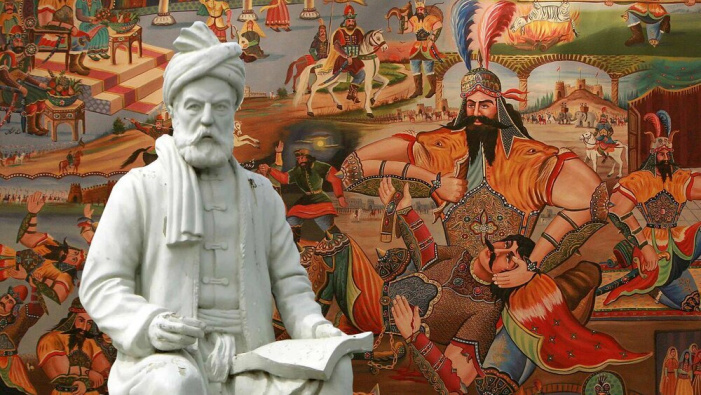Ferdowsi’s poetry
TEHRAN – Iranian literati have said that the Persian poet Abulqasem Ferdowsi and his epic masterpiece the Shahnameh (The Book of Kings) should not be considered medieval as some Western scholars pursue.
The remarks were made during an online session organized on Monday by The Persian Language and Humanities Department of Shiraz University and the Ferdowsi Foundation in Tehran.
Akbar Nahvi of Shiraz University and Mahmud Omidsalar, an Iranian professor of Persian literature at the University of California delivered speeches during the session.
Nahvi pointed to the articles and books authored by Omidsalar over the past decade and said, “By his publications, Omidsalar introduces the Shahnameh carefully and with no prejudice, particularly for the Shahnameh study claimants in America.”
He added that Omidsalar, after his comprehensive research, learned that Ferdowsi used the Shahnameh of Abu Mansur as a main source to compose his Shahnameh.
The Shahnameh of Abu Mansur was a work in prose commissioned by the aristocrat Abu Mansur Mohammed during the tenth century.
“However, over the past few decades, some scholars in the United States have published some ridiculous assertions, claiming that Ferdowsi had no source material, and the Shahnameh was composed based on oral traditions; that he had been listening to stories related by the people around him and versifying the tales at his home,” Nahvi stated.
He said that the scholars intend to generalize what happened to literature in the West during the Middle Ages to Ferdowsi’s Shahnameh.
“They have read about the medieval peddlers who manipulated stories, telling people that they have read them in such and such books to gain more trust from the people,” he explained.
In his “Poetics and Politics of Iran’s National Epic, the Shahnameh”, Omidsalar sees political intention behind the scholars’ attitudes toward the Shahnameh, Nahvi said.
In his speech, Omidsalar asked the Shahnameh aficionados to regard the coherence of the stories in the book.
He said that the stories in the Shahnameh are perfectly cinematic and added, “Ferdowsi has animated all his mental images. With his language, he makes a scene that a reader sees in wars, marshaling the forces and music. We see his camera zooming in on some scenes by means of his narratives; he even changes his camera angle and is present on two sides of the battle, and in the end, the music also plays. We see all these details in his literature.”
“Unlike other poets, Ferdowsi does not waste time, avoiding any extra literal interpretation. He doesn’t focus on the characters’ conversations, but he wants to quickly express the gist of his argument, and all of this contributes remarkably to the coherence of the Shahnameh,” Omidsalar said.
He called Greek poet Homer a verbal epic composer who improvised with a musical performance. “But, Ferdowsi composed the Shahnameh with a pen on paper through frequent writing. Ferdowsi remembers what a certain character of his story had in his hands and considers it in his subsequent references to the character, but those poets who had improvised do not bind themselves with the logic of their stories. Homer did so.”
Omidsalar is the author of “Iran’s Epic and America’s Empire”, which was released by Afshar Publishing in 2012.
The book regards the Shahnameh as Iran’s national epic, which is a compendium of Iranian myths, legends and history.
The book argues, “Unlike other Indo-European epics, the Shahnameh is not about a war, like the Iliad, or an individual, like the Odyssey, Beowulf, or the Ramayana. The central character of the Shahnameh is Iran, which it glorifies both as subject and hero. Unlike other classical Indo-European epics, the Shahnameh is not in a dead language. It is intelligible to every speaker of Persian in Iran, Afghanistan and Central Asia.
The book offers an explanation of the Shahnameh as a national icon and considers the implications of the poem for the present political tensions that mark Iran’s relationship with the West.
Courtesy of Tehran Times



Your Comment :